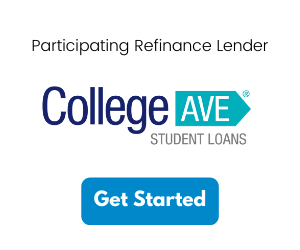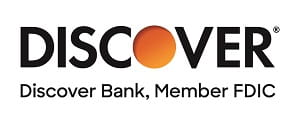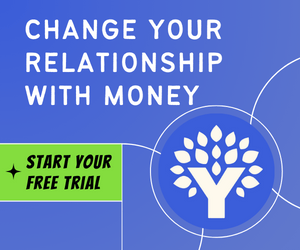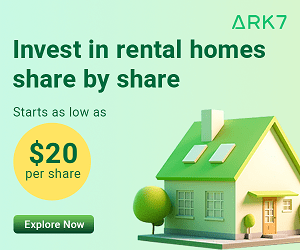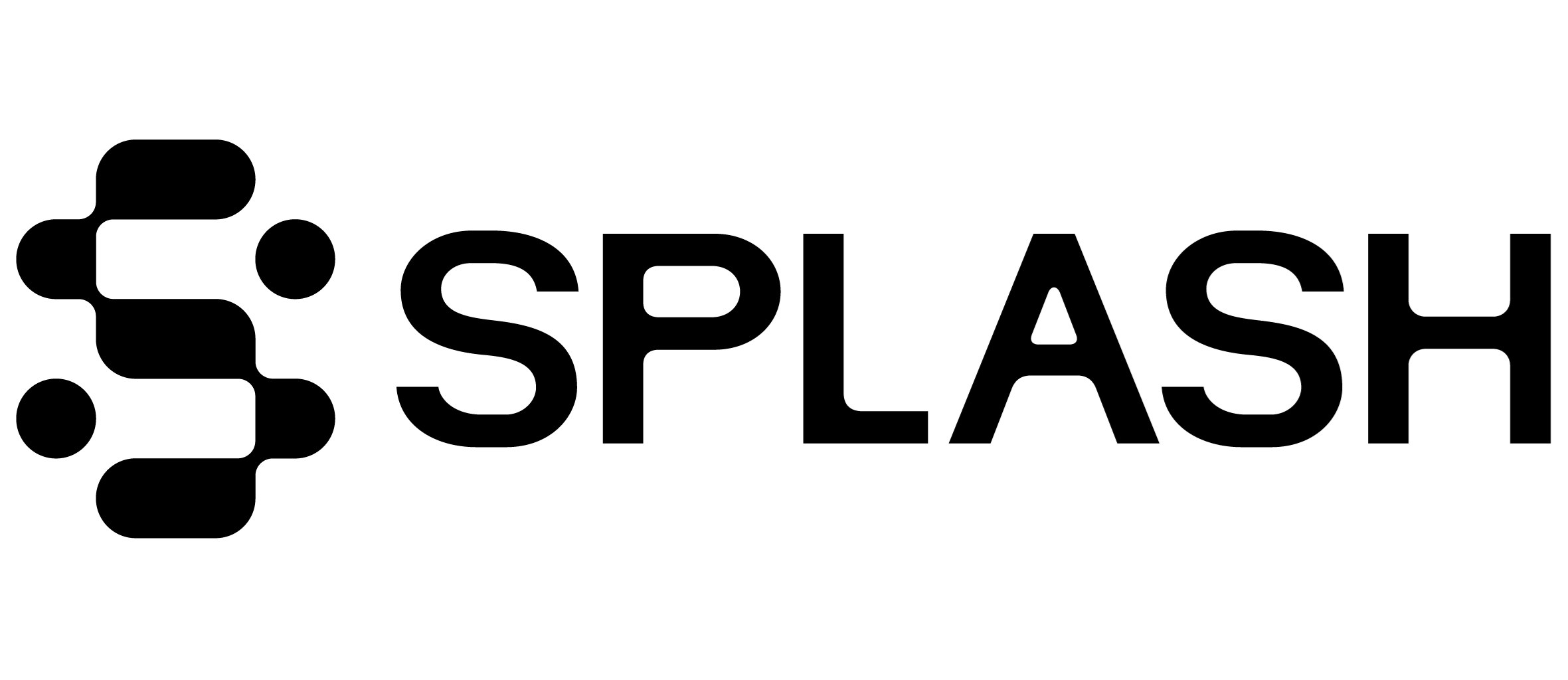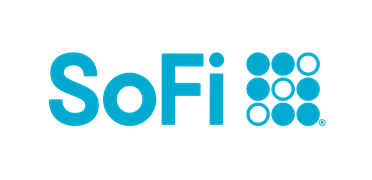If you’re facing repayment on your private student loans, you may need to know about monthly payment options; especially if your budget is tight. Or if you’re shopping for an in-school loan and want to understand the types of repayment plans lenders offer, we have the insights to help you.
Private student loan repayment options
There are six primary repayment options available when it comes to private student loans. These include:
- Immediate repayment (full principal and interest)
- Interest only
- Partial payments
- Deferred repayment
- Graduated repayment
- Student loan refinancing
Depending on where you are in your student loan journey (i.e. still in school vs. in repayment) you will have different repayment options to choose from. For example, interest only payments are common while you’re still in school, but may not be available from most lenders during the repayment period unless you are approved for some type of hardship deferment. And it’s also important to note that not all lenders offer multiple repayment plans.
Federal vs. Private Student Loan Repayment Options
While this article focuses on private student loan repayment options, it’s worth mentioning there is a difference between federal and private loan plans. If you have federal student loans, you may be eligible for a number of repayment plans that take your income into consideration, or that allow you to extend your repayment term based on your loan balance.
Making payments on student loans while in school
Private student loan lenders give you the option (ok, strongly encourage you) to make payments while in school. Unlike a subsidized federal loan where payments are automatically deferred and the interest is paid by the government, private loans are not automatically deferred and interest is charged throughout the life of the loan. This includes the moment the loan is disbursed, as well as the entire time you’re in school, during the grace period, and during repayment. But lenders realize that most students are not in a situation to take on repayment while they’re in school. So they give you a number of options up front.
Immediate Repayment
Immediate repayment means you would start repaying both the principal and interest on your loan every month while you’re in school. It basically means you just enter repayment right away. The benefit to this, assuming you can afford this option, is you’d end up paying your loan off much faster and would save a considerable amount of money in interest fees over the life of the loan.
Interest Only Payments
A common choice among students, interest only payments mean you just pay the amount of interest that accrues on your loan every month. You would not be making a dent on your principal balance, but this option does mean you would avoid unpaid interest from being added on top of your outstanding principal balance. If that were to happen, your starting loan amount in repayment would be higher, and you’d essentially be paying interest on top of interest.
Flat Payment (or partial payments)
Lenders may offer to schedule a low, fixed monthly payment while you are in school. Some lenders may even talk about a partial payment. Whatever the name, know this. Any payment that is less than a regular monthly payment of principal and interest is not going to reduce the actual loan balance. It will simply help you stay up-to-date with the interest that continues to accumulate. And it can certainly help you avoid having too much interest added (capitalized) on top of your outstanding principal balance at the start of repayment, thereby increasing the overall cost of the loan. But even if your lender does not place you on a partial payment plan or flat payment plan, you can elect to send money whenever you are able. You may want to consider doing so if you come into extra cash throughout the year, such as a tax refund or birthday or holiday cash.
Deferred Repayment
If you are unable to make any payments while in school, no worries. You will be given the option of simply postponing payments altogether. Your lender would place your loan(s) in a deferred status and bill you for regular monthly payments after you graduate and complete your grace period. Make sure you read the terms and conditions with this option. Your lender could have certain conditions you must meet (i.e., at least half-time enrollment) in order to maintain your loan deferment.
Private Student Loan Repayment After Graduation
Depending on the repayment option you choose, the repayment of your private student loans typically begins after graduation and following a grace period, usually 6 months. Your lender will most often place your loans on a standard repayment plan to put you on a path of fully repaying your loan within 10 years, sometimes longer depending on your balance.
Some lenders offer modified repayment terms. But you usually must request this in writing. Here are some common examples:
Graduated Repayment
Lenders like Sallie Mae offer a Graduated Repayment Period that lets you pay a lower monthly payment for a year. The amount of the payment usually equals the interest. You can request this after your graduation or grace period ends. The benefit here is you’d be allowed time to get your bearings after you finish school, which may include landing a job, possibly relocating, and earning a regular salary while juggling other obligations. After the year is over, you would begin making payments of principal and interest.
Refinance My Student Loans
Since repayment plans and loan terms vary by lender, and since interest rates change over time, you may want to consider refinancing your student loans. This can be a very effective way to manage your repayment by restructuring your loans. Refinancing allows you to combine multiple loans together (including both federal and private student loans), or you can refinance a single loan. Reasons you may want to consider refinancing as part of your repayment strategy include:
- Qualifying for a lower interest rate – You could save money in the long run by paying less interest on your loan, potentially thousands of dollars.
- Reducing your monthly payment – By extending your repayment term, you could lower your monthly payment amount. Depending on your outstanding balance (and in some cases your career field), you may be able to extend your term to 25 years. And there are no prepayment penalties, so you can always accelerate your repayment later in order shave time—and money—off the clock.
- Releasing a cosigner – Thank God for mom or dad, or some other equally saintly person who helped you pay for your higher education! But it is doubtful they want to be on the hook as a cosigner for the rest of their lives. Refinancing results of paying off your underlying loan(s) that may have been cosigned. And once that happens, your cosigner is basically released from their obligations. But know this. 1) You will need to qualify for the refinance on your own merit. This is a credit-based loan. 2) There are some lenders that also offer parent loan refinancing where the parent’s loan can be transferred to the student.
Compare Top Refinance Lenders
Splash Financial Refinance Loan
Splash Financial negotiates with credit unions and banks to provide low refinancing rates to student loan borrowers.Splash is a student loan refinance company that negotiates with credit unions and banks to provide market-leading rates. Our sole focus is helping graduates save money through student loan refinancing – it’s the only product we offer!
The Splash Financial Refinance Loan Offers the Following:
- Rates as low as 4.74%1 Variable APR and 4.96%1 Fixed APR
- See your rates in 3 minutes without affecting your credit score2
- No pre-payment penalties, origination, or application fees
- Minimum loan amounts starting at $5,000 and no loan maximums
- Special terms for Medical and Dental Residents and Fellows
Minimum Eligibility Requirements
- Graduates with an associate, bachelor’s or graduate degree
- Parents who took out educational loans to finance their child’s education are also eligible if the child has graduated
- Borrower must be a U.S. citizen or permanent resident
- 650+ FICO
- <50% Monthly Debt-to-Income Ratio
Loan Limits
Minimum Loan Amount: $5,000
Annual loan maximum: No Maximum
1The rates displayed may include a 0.25% autopay discount.
2To check the rates and terms you qualify for, Splash Financial conducts a soft credit pull that will not affect your credit score. However, if you choose a product and continue your application, the lender will request your full credit report from one or more consumer reporting agencies, which is considered a hard credit pull and may affect your credit.
ELFI Student Loan Refinance
ELFI is a nationwide student loan debt consolidation and refinancing program offered by Tennessee based SouthEast Bank. Offering among the lowest rates in the industry coupled with award winning customer service, it is designed to assist borrowers through consolidating and refinancing education loans to lower your cost of education and/or makes repayment very simple.
ELFI – backed by the strength of SouthEast Bank – combines the benefits of traditional education loan financing with the superior products, service, and support found in the private market.
1Average savings calculations are based on information provided by SouthEast Bank/ ELFI customers who refinanced their student loans between 01/03/23 and 03/01/23. While these amounts represent reported average amounts saved, actual amounts saved will vary depending upon a number of factors.
2Rates accurate as of 11/15/24. The interest rate and monthly payment for variable rate loans may increase after closing. Your actual interest rate may be different from the rates shown above and will be based on the term of your loan, your financial history, and other factors, including your cosigner’s (if any) financial history. For example, a 10 year loan with a fixed rate of 6% would have 120 payments of $11.00 per $1,000 borrowed. To qualify for refinancing or student loan consolidation through ELFI, you must have at least $10,000 in qualified student loan debt and must have earned a bachelor’s degree or higher from an approved post-secondary ELFI institution. ELFI Parent Loans are limited to a maximum of the 10-year term.
Earnest Student Loan Refinancing
New-fashioned loans for the next generation.
Earnest is a technology company using cutting-edge data science, smarter design, and software automation to rebuild financial services.
With a mission to empower people with the financial capital they need to live better lives, Earnest's lending products are built for a new generation seeking to reach life's milestones. The company uses data and technology to understand every applicant's unique financial story and offer the lowest possible rates.
To qualify, you must be a U.S. citizen or possess a 10-year (non-conditional) Permanent Resident Card, reside in a state Earnest lends in, and satisfy our minimum eligibility criteria. You may find more information on loan eligibility here: https://www.earnest.com/eligibility. Not all applicants will be approved for a loan, and not all applicants qualify for the lowest rate. Approval and interest rate depend on the review of a complete application.
Actual rate and available repayment terms will vary based on your income. Fixed rates range from 4.20% APR to 9.99% APR (excludes 0.25% Auto Pay discount). Variable rates range from 6.14% APR to 9.99% APR (excludes 0.25% Auto Pay discount). Earnest variable interest rate student loan refinance loans are based on a publicly available index, the 30-day Average Secured Overnight Financing Rate (SOFR) published by the Federal Reserve Bank of New York. The variable rate is based on the rate published on the 25th day, or the next business day, of the preceding calendar month, rounded to the nearest hundredth of a percent. The rate will not increase more than once per month. The maximum rate for your loan is 8.95% if your loan term is 10 years or less. For loan terms of more than 10 years to 15 years, the interest rate will never exceed 9.95%. For loan terms over 15 years, the interest rate will never exceed 11.95%. Please note, we are not able to offer variable rate loans in AK, IL, MN, NH, OH, TN, and TX. Our lowest rates are only available for our most credit qualified borrowers and contain our .25% auto pay discount from a checking or savings account.
*Auto Pay Discount: If you make monthly principal and interest payments by an automatic, monthly deduction from a savings or checking account, your rate will be reduced by one quarter of one percent (0.25%) for so long as you continue to make automatic, electronic monthly payments. This benefit is suspended during periods of deferment and forbearance. Not all borrowers will qualify for our lowest rates, and your rate will be based on creditworthiness at time of application.
The information provided on this page is updated as of 11/14/2024. Earnest reserves the right to change, pause, or terminate product offerings at any time without notice.
Earnest Loans are made by Earnest Operations LLC or One American Bank, Member FDIC. or FinWise Bank, Member FDIC. Earnest Operations LLC, NMLS #1204917. 535 Mission St., Suite 1663, San Francisco, CA 94105. California Financing Law License 6054788. Visit www.earnest.com/licenses for a full list of licensed states. For California residents: Loans will be arranged or made pursuant to a California Financing Law License. One American Bank, 515 S. Minnesota Ave, Sioux Falls, SD 57104. FinWise Bank, 756 East Winchester, Suite 100, Murray, UT 84107.
Earnest loans are serviced by Earnest Operations LLC, 535 Mission St., Suite 1663 San Francisco, CA 94105, NMLS #1204917, with support from Higher Education Loan Authority of the State of Missouri (MOHELA) (NMLS# 1442770). One American Bank, FinWise Bank, and Earnest LLC and its subsidiaries, including Earnest Operations LLC, are not sponsored by agencies of the United States of America.
nmlsconsumeraccess.org
© 2024 Earnest LLC. All rights reserved.
THIS IS AN ADVERTISEMENT. YOU ARE NOT REQUIRED TO MAKE ANY PAYMENT OR TAKE ANY OTHER ACTION IN RESPONSE TO THIS OFFER.Don't get stuck with the standard student loan rate. You've worked hard; you deserve better. Learn how SoFi Student Loan Refinancing can help you put money back in your pocket:
- Check your rate in two minutes.
- See how much you could save.
- SoFi has refinanced over $30 billion in student loans for more than 450,000 members.
1Fixed rates range from 4.49% APR to 9.99% APR with 0.25% autopay discount and 0.25% direct deposit discount. Variable rates range from 5.99% APR to 9.99% APR with 0.25% autopay discount and 0.25% direct deposit discount. Unless required to be lower to comply with applicable law, Variable Interest rates will never exceed 13.95% (the maximum rate for these loans). SoFi rate ranges are current as of 11/20/24 and are subject to change at any time. Your actual rate will be within the range of rates listed above and will depend on the term you select, evaluation of your creditworthiness, income, presence of a co-signer and a variety of other factors. Lowest rates reserved for the most creditworthy borrowers. For the SoFi variable-rate product, the variable interest rate for a given month is derived by adding a margin to the 30-day average SOFR index, published two business days preceding such calendar month, rounded up to the nearest one hundredth of one percent (0.01% or 0.0001). APRs for variable-rate loans may increase after origination if the SOFR index increases. The SoFi 0.25% autopay interest rate reduction requires you to agree to make monthly principal and interest payments by an automatic monthly deduction from a savings or checking account. This benefit will discontinue and be lost for periods in which you do not pay by automatic deduction from a savings or checking account. The benefit lowers your interest rate but does not change the amount of your monthly payment. This benefit is suspended during periods of deferment and forbearance. Autopay and Direct Deposit are not required to receive a loan from SoFi. You may pay more interest over the life of the loan if you refinance with an extended term.
0.25% Direct Deposit Discount: Terms and conditions apply. Offer good for Student Loan Refinance (SLR) borrowers that apply for a new SLR on or after 9/17/2024. To be eligible to receive the 0.25% interest rate reduction offer: You must (1) Complete a Student Loan refinance application with SoFi beginning September 17, 2024; (2) Be approved by SoFi for the loan meeting all SoFi’s underwriting criteria; (3) Have either an existing SoFi Checking and Savings account, a SoFi Money cash management account or open a new SoFi Checking and Savings account within 30 days of funding the new loan, AND receive a direct deposit of at least $1,000 to the account within the first 30 days of funding the new loan ("Direct Deposit Account"); (4) Be the primary SLR account holder. If eligible at SoFi’s sole discretion, you will receive this discount during periods in which you have received direct deposits of at least $1,000 every 30 days to a Direct Deposit Account. This discount will be removed during periods in which SoFi determines you have not received at least $1,000 every 30 days in direct deposits to your Direct Deposit Account. You are not required to enroll in direct deposits to obtain a Loan. This discount lowers your interest rate but does not change the amount of your monthly payment. SoFi reserves the right to change or terminate this Rate Discount Program to unenrolled participants at any time without notice.
College Ave Student Loans Refi was created to help graduates refinance existing student loans so they can repay their loans easily while reducing the total cost and/or monthly payment.
- No application or origination fees
- Variable rate range: 6.99% – 13.99% APR1
- Fixed rate range: 6.99% – 13.99% APR1
- Choose how long you take to repay the loan
Eligibility
- You (and your cosigner, if applicable) must be a U.S. Citizen or permanent resident.
- Must have graduated from a public or private, not-for-profit, degree granting institution
- Consolidate and refinance up to $300,0003
- All loans are subject to individual approval and adherence to underwriting guidelines.
College Ave Student Loans products are made available through Firstrust Bank, member FDIC, First Citizens Community Bank, member FDIC, or M.Y. Safra Bank, FSB, member FDIC.. All loans are subject to individual approval and adherence to underwriting guidelines. Program restrictions, other terms, and conditions apply.
1The 0.25% auto-pay interest rate reduction applies as long as the borrower or cosigner, if applicable, enrolls in auto-pay and authorizes our loan servicer to automatically deduct your monthly payments from a valid bank account via Automated Clearing House (“ACH”). The rate reduction applies for as long as the monthly payment amount is successfully deducted from the designated bank account and is suspended during periods of forbearance and certain deferments. Variable rates may increase after consummation.
2This informational repayment example uses typical loan terms for a refi borrower who selects the Full Principal & Interest Repayment Option with a 10-year repayment term, has a $40,000 loan and a 5.5% Annual Percentage Rate (“APR”): 120 monthly payments of $434.11 while in the repayment period, for a total amount of payments of $52,092.61. Loans will never have a full principal and interest monthly payment of less than $50. Your actual rates and repayment terms may vary.
3$5,000 is the minimum requirement to refinance. The maximum loan amount is $250,000 for those with medical, dental, pharmacy or veterinary doctorate degrees, and $150,000 for all other undergraduate or graduate degrees.
Information advertised valid as of 03/01/2023. Variable interest rates may increase after consummation. Approved interest rate will depend on the creditworthiness of the applicant(s), lowest advertised rates only available to the most creditworthy applicants and require selection of full principal and interest payments with the shortest available loan term.
Private Student Loans Income Based Repayment
Unfortunately, there really aren’t any income-based repayment plans for private student loans. These exist under the federal student loan program, but they are not generally available for private loans. However, if you are having challenges in repaying your loan, it’s best to contact your lender to explain your situation and explore options such as those explained above or in the next section.
Private Student Loan Deferment
If you encounter a hardship, private student loan deferment may be an option. This means you can ask your lender for a temporary postponement of payments where monthly obligations could be waived for a short period of time, such as 3 or 6 months. Some lenders may offer a forbearance, but it’s practically the same thing. Regardless of the lender calls it, a deferment or forbearance gives you time to get back on your feet. Some lenders may still require that you make interest payments each month, others may allow you to postpone both interest and principal. If you’re not in a position to pay the interest during this time, it will be added to your principal balance at the end of the deferment resulting in not only a higher balance, but often a higher monthly payment.
Can I Deduct Private Student Loan Interest?
Yes, you may be able to deduct the amount you paid on private student loan interest on your tax returns. Most private student loans are eligible for the student loan interest deduction, which allows you to deduct up to $2,500 in interest on federal and private student loans each year on your tax filings. Of course, this is subject to income limits.
Other Ways to Save Money on Student Loans
Most lenders offer auto-debit discounts, such as a 0.25% or 0.50% interest rate if you agree to have your monthly payments automatically deducted from a bank account. You’ll want to sign up for this service at the start of repayment, if possible, to take advantage of what could be sizeable savings over time.
Private Student Loan Relief
During the COVID-19 pandemic, most lenders chose to help borrowers with some form of private student loan relief. What this means is they offer a temporary forbearance (sometimes called an emergency forbearance or hardship deferment) to give you a break on your regular student loan payments. This does not mean lenders are waiving interest or automatically postponing payments as part of the CARES Act, the way the federal government has done on federal student loan loans owned by the U.S. Department of Education (ED).
For those impacted by COVID-19, private student loan lenders began offering temporary relief—anywhere from 30 days to 12 months—from regularly scheduled monthly payments. Because this is discretionary, policies and programs will vary by lender. If you are still having difficulty making your private student loan payments due to impacts from COVID, you should contact your lender.
Learn more tips strategies for paying off private student loans.
What to Read Next

